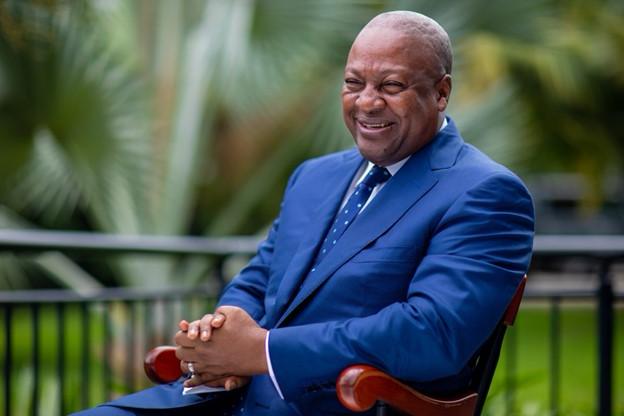Mr. President, your return to office offers a unique opportunity to inspire hope and set a transformative agenda for Ghana. The first 100 days of your
Mr. President, your return to office offers a unique opportunity to inspire hope and set a transformative agenda for Ghana. The first 100 days of your presidency will be crucial for defining your leadership and laying the groundwork for long-term development. Here is a strategic roadmap to guide your actions:
1. Deliver a Vision of Unity and Progress
– Inaugural address: Use your first speech to emphasize national unity, economic recovery, and a shared vision for prosperity. Highlight your commitment to transparency, inclusivity, and addressing the immediate concerns of Ghanaians.
– 100-Day Plan: Announce clear, measurable objectives that focus on stabilizing the economy, addressing unemployment, and improving public services.
2. Stabilize the Economy and Restore Confidence
– Economic Stability: Work with the Bank of Ghana and the Ministry of Finance to stabilize the cedi, curb inflation, and restructure Ghana’s debt. Partner with international financial institutions to establish sustainable frameworks.
– Youth Employment: Launch initiatives aimed at tackling unemployment, such as expanding youth entrepreneurship programs and incentivizing private sector job creation.
– Business Advisory Council (BAC): Establish a Business Advisory Council to pivot private sector development toward national priorities. This council will identify barriers to business growth, streamline regulations, and foster collaboration between government and industry leaders.
3. Strengthen Governance and Fight Corruption
– Transparent Leadership: Appoint a competent, inclusive, and gender-balanced cabinet. Demonstrate accountability by publicly declaring assets and promoting transparency in government dealings.
– Anti-Corruption Measures: Reinforce independent anti-corruption bodies and empower them to act decisively. Commit to an open-government framework that prioritizes e-governance to reduce bureaucratic inefficiencies.
4. Lay the Foundation for Long-Term Development
– National Development Plan: Convene a bipartisan committee to create a long-term development blueprint transcending political cycles, with clear goals for industrialization, education, and infrastructure.
– Private Sector Growth: Use the Business Advisory Council to identify and invest in high-growth sectors like agribusiness, renewable energy, technology, and tourism.
– Infrastructure Development: Prioritize visible projects in transportation, energy, and housing, especially in underserved areas.
5. Focus on Social Development
– Healthcare: Commit to revitalizing the National Health Insurance Scheme (NHIS) and addressing resource gaps in rural healthcare systems.
– Education: Address challenges in teacher recruitment and infrastructure while ensuring the sustainability of free SHS. Expand technical and vocational education to prepare youth for the job market.
– Community Engagement: Personally engage with citizens through regional tours to hear their concerns and foster trust in your leadership.
6. Foster Regional and Global Partnerships
– Diplomacy: Strengthen Ghana’s leadership in ECOWAS and the African Union by advocating for regional stability and integration.
– Investment Promotion: Host a national economic forum to attract foreign and local investors, showcasing Ghana as a stable and promising destination.
– Climate Leadership: Champion climate-resilient agriculture and renewable energy projects to position Ghana as a leader in sustainable development.
7. Communicate Effectively and Build Trust
– Weekly Updates: Hold regular press briefings to update the nation on progress and challenges.
– Social Media Outreach: Leverage digital platforms to engage directly with the youth and keep citizens informed.
Conclusion
The first 100 days offer an opportunity to restore hope and build momentum for transformative change. By addressing immediate economic concerns, fostering private sector growth through initiatives like the Business Advisory Council, and prioritizing governance, infrastructure, and social development, you can create a foundation for sustained progress and unity.

COMMENTS